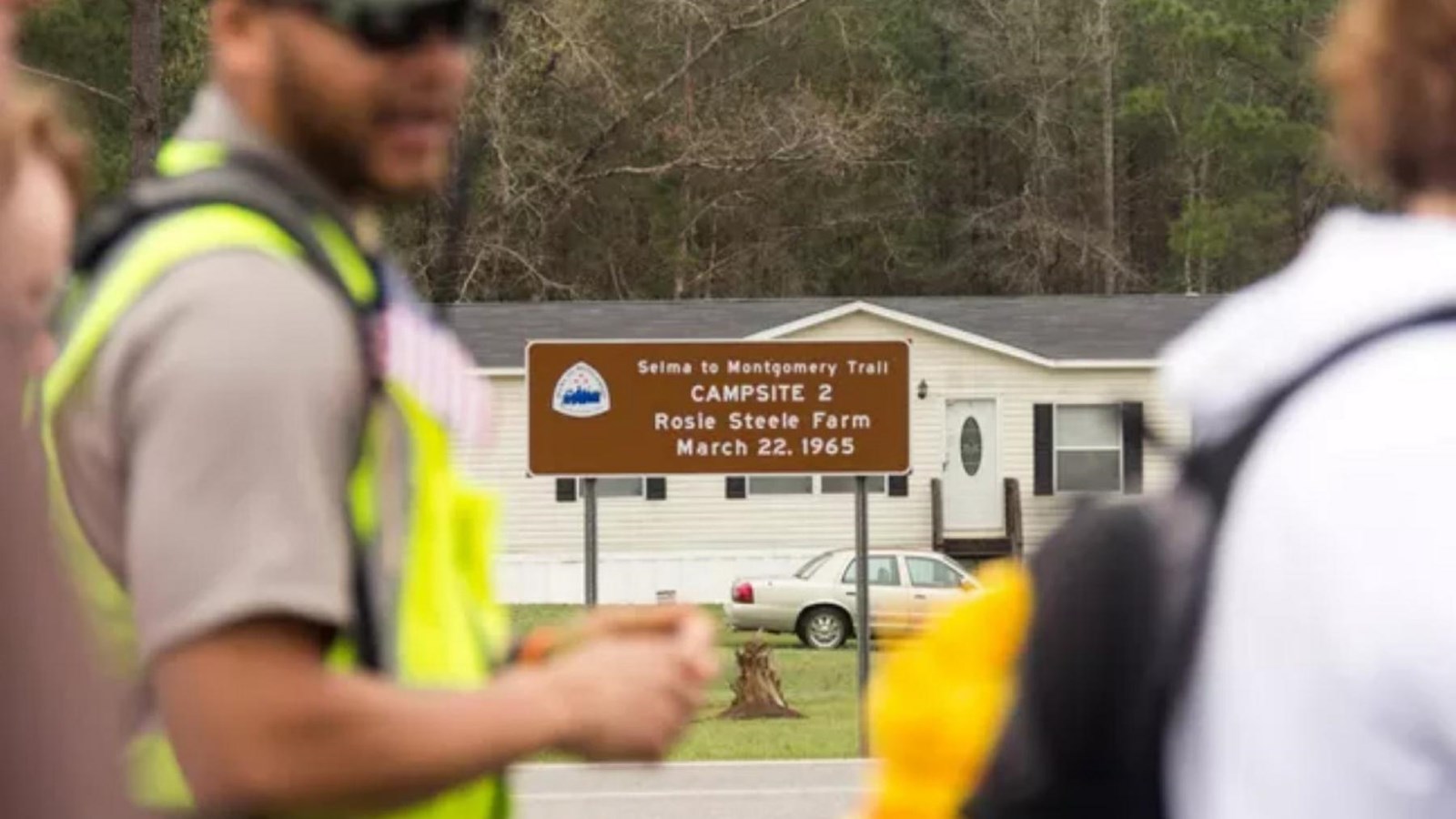Last updated: September 20, 2024
Place
Rosie Steele Property (Campsite 2)

NPS Photo
On March 22nd, 1965, 300 marchers of the Selma to Montgomery March passed through Lowndes County on the two-lane U.S. Highway 80. After the second day of marching the group arrived at land owned by Rosie Steele, a 78-year-old Black woman who graciously offered her property as a campsite. Despite the hospitality, the conditions were challenging. The ground near her grocery store and filling station was infested with red ants, it was raining, and the food delivered from Selma, arrived cold. Nonetheless, Steele’s support marked a powerful act of solidarity at a critical time in the movement.
The following morning, the marchers improvised rain gear from plastic garbage bags and cardboard to continue their journey, though they quickly became soaked. Despite these hardships, they pushed on, exemplifying the resilience and determination that defined the Civil Rights Movement. Rosie Steele, who owned over 200 acres in the area, knew the risks she was taking by assisting the marchers. "I lived my three-score and ten," she said, referring to her age, fully aware of the potential reprisals she could face.
Indeed, retaliation came swiftly. Local food vendors refused to sell to Steele’s store after her act of support. In response, SNCC organizer Bob Mants and another local Black store owner, William Cosby, launched a boycott of these vendors, convincing other Black merchants in the area to join the effort until the vendors resumed sales to Steele. Her courage and the solidarity of those around her highlighted the important role that ordinary people, like Rosie Steele, played in sustaining the movement.
